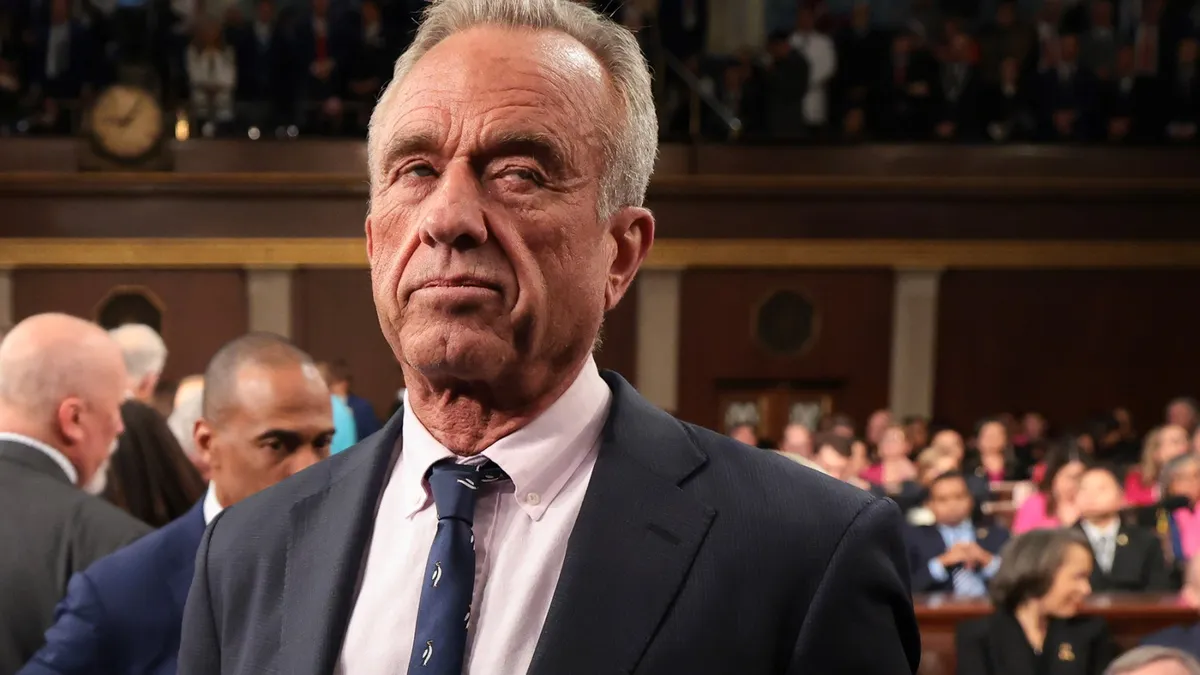
Robert F. Kennedy Jr., a prominent figure known for his controversial views on vaccines, has faced significant opposition from the medical community regarding his nomination to lead the Department of Health and Human Services (HHS). Thousands of doctors, along with numerous Nobel Prize winners, have voiced their concerns about his lack of medical experience and the potential risks of his leadership during an infectious disease outbreak. This skepticism is particularly relevant as a measles outbreak has been affecting West Texas since late January.
In his first Cabinet meeting under President Donald Trump, Kennedy addressed the ongoing measles outbreak. He downplayed the situation, falsely asserting that such outbreaks are “not unusual,” despite the outbreak leading to the first measles death in the United States in a decade. Shortly after this meeting, while health officials scrambled to control the outbreak, Kennedy shared a Facebook post showcasing his leisure activities in California, which raised alarms among HHS officials. A former Trump official remarked, “It’s a serious role... when you’re taking a selfie out at Coachella, it’s pretty clear that you’re checked out.”
The resurgence of measles in recent years can largely be attributed to a growing vaccine hesitancy, a trend that Kennedy has been known to promote. While he acknowledged the necessity of the MMR vaccine in an op-ed for Fox News, he also emphasized personal choice regarding vaccination and recommended alternative treatments, including vitamin A. He claimed that vitamin A could “dramatically reduce measles mortality,” but experts quickly countered his assertions.
Dr. Megan Ranney, the dean of the Yale School of Public Health, stated unequivocally that “vitamin A is not a substitute for vaccination.” Furthermore, Dr. Amesh Adalja from the Johns Hopkins Center for Health Security criticized Kennedy for misrepresenting scientific studies regarding vitamin A. This highlights the critical need for accurate information and the importance of vaccines in preventing diseases like measles.
In response to Kennedy’s comments, Senator Elizabeth Warren penned a letter questioning his stance on vaccinations. She pointed out that he failed to issue a strong call for vaccinations in light of the outbreak, instead suggesting that “good nutrition remains a best defense against most chronic and infectious diseases.” This led her to ask whether he believes that nutrition is a more effective defense against measles than the MMR vaccine.
During a recent appearance on Fox News, Kennedy reiterated his support for vaccination but also mentioned various alternative treatments, including budesonide, clarithromycin, and cod liver oil. In response, Dr. Ashish K. Jha, former coordinator for President Biden's Covid-19 response, criticized Kennedy's comments as “beyond absurd.” He emphasized that managing measles is fundamentally about prevention through vaccination, not through quack treatments.
The situation in West Texas serves as a stark reminder of the challenges posed by vaccine misinformation and the critical role of effective public health leadership. As long as individuals like Robert F. Kennedy Jr. continue to lead national health services with unscientific views, the risks to public health will remain high. It is essential for the public to rely on credible medical advice and prioritize vaccination to protect against outbreaks like measles.